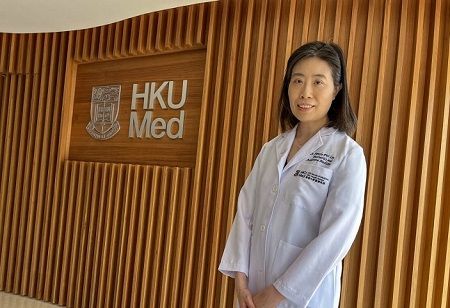The University of Hong Kong (HKU) is set to overhaul its undergraduate medicine program, placing a greater emphasis on combating cancer and integrating cutting-edge technology into the curriculum. Dr. Pamela Lee Pui-wah, assistant dean of clinical curriculum at HKU's faculty of medicine, announced the restructuring, effective from October and impacting year 4 students. This redesign is driven by the university's anticipation of societal changes over the next five years, ensuring students are equipped to address evolving healthcare needs.
The revamped curriculum will allocate eight weeks to studying cancer, reflecting its anticipated rise in prevalence among an ageing population. Dr. Lee highlighted the significance of preparing for a future where a substantial portion of the population will be elderly, emphasizing the importance of healthcare adaptation to meet their needs. The expansion into cancer education aims to provide students with a holistic understanding, bridging various medical specialties and emphasizing patient-centric perspectives.
Moreover, the curriculum overhaul will introduce innovative teaching methods, including augmented reality, virtual reality, and generative artificial intelligence. These technologies will not only enhance learning but also prepare students for emerging trends in healthcare delivery, such as virtual medical consultations. Dr. Lee emphasized the importance of cybersecurity and patient privacy protection in these virtual interactions.
The current six-year medicine curriculum at University of Hong Kong HKU will retain its structure for the first three years, focusing on preclinical studies and an enrichment program. However, year 4 will undergo significant changes, with the introduction of a structured curriculum spanning 48 weeks. This period will be divided into three segments, with the first two focusing on medicine and surgery, followed by rotations through obstetrics, gynaecology, paediatrics, family medicine, geriatrics, psychiatry, and emergency medicine, reflecting the life cycle. The final segment will dedicate eight weeks to intensive cancer education.

